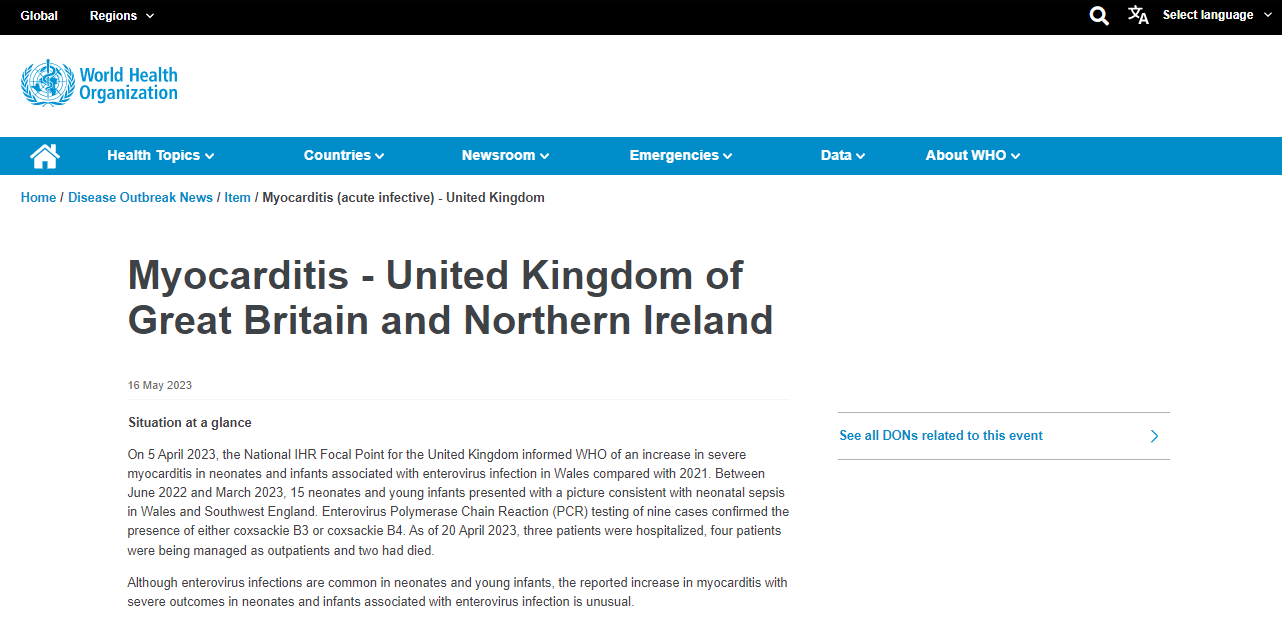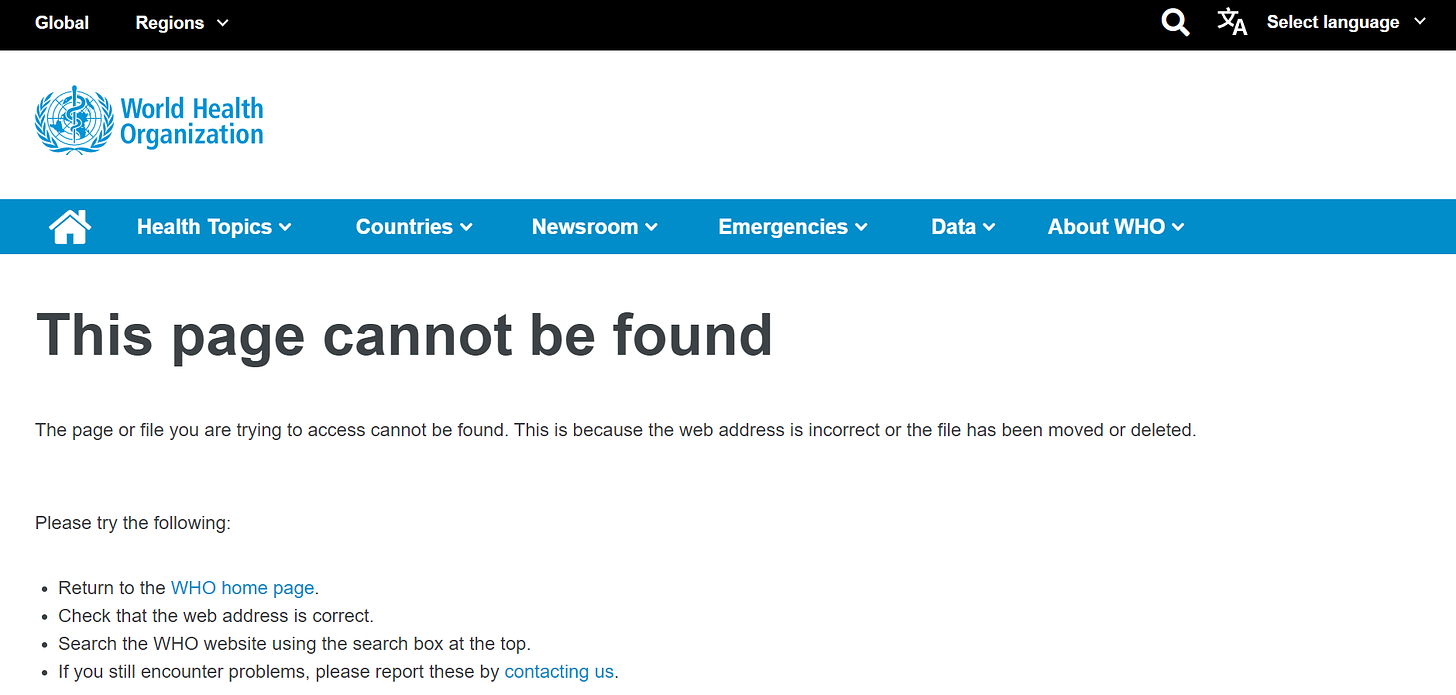WHO Issues Alert - Increase In Severe Myocarditis in UK Babies
Experts are baffled as to the cause
Late yesterday, the World Health Organization (WHO) issued an alert, warning of an increase in severe myocarditis in neonates and infants. Compared with 2021 there has been a rise in myocarditis cases with 15 babies in Wales and Southwest England presenting to hospital. Sadly two babies died and eight were treated in intensive care.
As most here will be aware, myocarditis is the inflammation of the heart and can cause chest pain, shortness of breath and heart palpitations.
I find it strange that the WHO announced this situation rather than the UK Health Security Agency (UKHSA). According to the report, the National IHR Focal Point for the UK informed the WHO about the myocarditis cases on 5 April. Why wait a month and a half before issuing the alert?
Another oddity is that after the alert had been published, the WHO removed it from their website [UPDATE - A revised version is back up]. Fortunately, the Wayback Machine captured it so it is available to read here.
Between June 2022 and March 2023, 15 babies aged up to 28 days attended hospital with symptoms consistent with neonatal sepsis. In all cases alive at presentation, myocarditis was a presenting feature.
The report says that the peak incidence of cases was in November 2022 with five cases. In total there have been 10 cases in South Wales and five in Southwest England. As of 20 April 2023, three patients were still hospitalised, four were being managed as outpatients and two had died. Further details on the remaining six cases are pending.
These may seem like small numbers but to get an idea of how rare severe myocarditis in new-borns is, there has only been one similar case identified over the previous six years in South Wales.
Experts suspect that the cases of myocarditis may be linked to an enterovirus. All of the nine cases that presented to hospital tested positive for the virus, either with the subtype coxsackie B3 or B4. The babies that went into intensive care had support including intubation, ventilation and circulatory support.
However, they are baffled as to why so many babies are developing myocarditis as enteroviruses are usually mild.
The report says myocarditis can also be caused by a bacterial infection, a reaction to a drug, or an autoimmune disease. Which drug has been causing a lot of myocarditis recently? Of course, the mRNA vaccines. And with the Pfizer documents revealing that babies received the vaccine via the placenta and through breast milk, it wouldn’t be too much of a stretch to hypothesise that maybe the vaccines were playing a part in this.
Playing devil’s advocate, I would say that most women giving birth between those dates had probably not been vaccinated since their baby had been conceived (with most having their final jab in early 2022) . However, we know that the lipid nanoparticles encapsulating the mRNA find its way to organs all around the body and lingers there for God knows how long.
Perhaps the rise in myocarditis cases have been caused by an enterovirus. Perhaps it was Covid. Perhaps something else has caused the enterovirus to become more severe than it usually would be. Or perhaps, that something else is the cause and the enterovirus is coincidental.
Whatever the cause is, it would be sensible to look at the vaccination status of the mothers. However, I can pretty much guarantee this won’t be done as the vaccines were safe and effective.






"Experts remain baffled" while people with brains still in their heads can see the cause plain as day.
Sounds eerily, stomach-churningly, infanticidally and demolish-these-institutions-immediately similar to the same avoidance of mothers’ vaccination status in Scotland when they couldn’t explain all the baby deaths in January...
https://www.heraldscotland.com/news/23259523.expert-review-mystery-spike-scots-baby-deaths-begins/
“Any link to Covid vaccines has been ruled out on the basis of international evidence demonstrating their safety in pregnancy, but PHS confirmed that it had not checked the vaccination status of any of the mothers affected.
It stressed that there was no public health basis to do, and that such an analysis "whilst being uninformative for public health decision making, had the potential to be used to harm vaccine confidence".